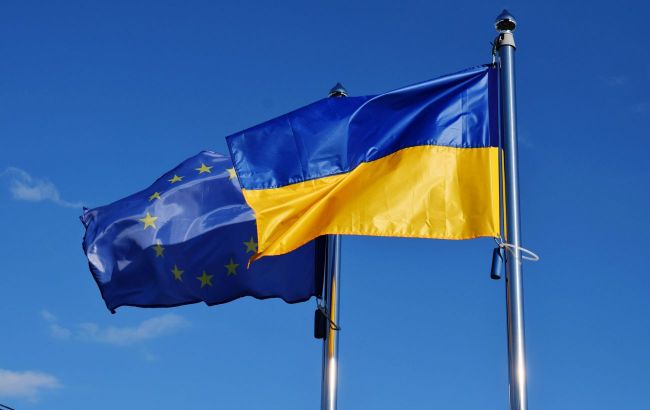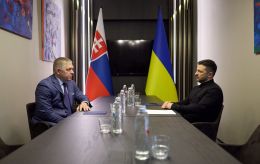EU refuses to work publicly on Ukraine's accession, Politico reveals reason
 EU refuses to work publicly on Ukraine's accession, Politico reveals reason (Getty Images)
EU refuses to work publicly on Ukraine's accession, Politico reveals reason (Getty Images)
The European Union does not want to publicly discuss the admission of new members against the backdrop of protests from farmers and upcoming elections, according to Politico.
According to farmers, they are fighting a losing battle due to competition from cheap imports from outside the EU and are shocked by high fuel prices and Brussels' environmental standards.
Meanwhile, European leaders are making concessions to appease farmers and minimizing discussions about expanding the bloc, especially with only three months until the EU elections.
According to some EU officials, they want to keep the work on preparing for the final integration of Ukraine, Moldova, and a number of Western Balkan countries secret because it will have side effects for farmers.
"Let's be honest: nobody wants to talk about this [enlargement] before the European elections. Talking about less subsidies for European farmers is not something you'd want to put on your campaign slogans — or give as electoral ammunition for the far right," said one EU official.
Meanwhile, European Commission President Ursula von der Leyen, who plans to lead the current position for the second time, promised to prepare the bloc for Ukraine. In a speech in September 2023, she stated that it is essential to address this issue "today if we want to be ready for tomorrow" and called on Europe to "think big and write our own destiny."
Herculean task
The task of integrating Ukraine is "Herculean." The war-torn country would become the largest territory of the bloc, and Kyiv would have significant influence in the European Parliament and the EU Council.
When Ukraine becomes a member of the bloc, it will have one of the lowest GDPs, which would seriously burden the bloc's cohesion policy. Integrating Ukraine would mean that within seven years, the country would receive around 186 billion euros from the EU. This, in turn, would mean that all other countries in the bloc "will have to pay more and receive less."
"The bloc decided preparations for the eventual integration of Ukraine, Moldova, Georgia, and six Western Balkan countries should be carried out internally, not in the public eye," the agency adds.
Politico notes that during the upcoming summit, European leaders will almost not discuss bloc expansion and plan to simply "sum up" future tasks.
EU elections
It was expected that the Commission would publish a communication on reform before the expansion as early as the end of February, but this did not happen. According to other EU officials, the project was greatly softened.
"You can feel a lot of nervousness about this document within the Commission ranks. Of course, the pre-electoral period doesn't help," noted one diplomat.
According to other officials, real debates on expansion will begin after the European elections. At the end of June, European leaders will sign the so-called strategic agenda of the next European Commission, including internal European reform. In particular, Poland, which will take over the rotating presidency of the EU Council in 2025, is expected to start laying the groundwork for expansion.
Border situation with Poland
Polish farmers continue to block the movement of freight vehicles. Significant complications are observed for crossing the border towards Ukraine and Poland.
Polish farmers continue to block six border crossings:
- Yahodyn;
- Ustyluh;
- Uhryniv;
- Rava-Ruska;
- Shehyni;
- Krakovets.
On March 5, Polish farmers announced that they would continue protests on the border with Ukraine until April 30, and on March 10, they temporarily unblocked the Krakovets checkpoint.

